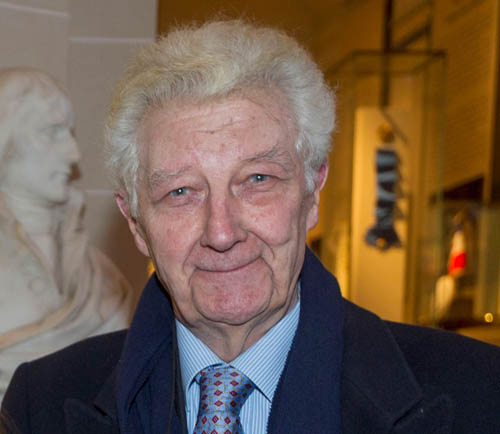Obituary > Jacques Jourquin (1935-2021)

Writer, historian, publisher, entrepreneur and driving force within the Napoleonic world for half a century, Jacques Jourquin died on November 14th. His youthful looks (before his illness) belied his 86 years, and indeed given his tireless activity he could easily have been mistaken for someone in his mid-sixties…. It is difficult to summarise his career, so abundant and varied was it. To limit this obituary to just his “Napoleonic” activities, one has to start with the fact that, as general manager and then president of the publishing house Tallandier, he created the famous “Bibliothèque Napoléonienne”; there’s probably no Napoleonic library which doesn’t have several of the 120 or so volumes that were published there. He re-launched the Revue de l’Institut Napoléon with Jean Tulard, was editor-in-chief of the Revue du Souvenir Napoléonien from 1993 to 2005, directed Historia for two decades, participated in the foundation of the magazine Napoléon Ier, etc. As a historian, he has written an irreplaceable Dictionnaire des maréchaux du Premier Empire (1986), biographies of Ney (2004), Masséna (2007) and Morny (2011), a formidable study on the Marshals of the Great War (2008), dozens of articles (including thirty or so in Jean Tulard’s Dictionnaire Napoléon) and no less than fifteen editions of memoirs. Since he owned part of Mamluk Ali’s papers, he undertook the publication of the main unpublished pieces, including those on the Russian campaign and the return of the Napoleon’s mortal remains. Very recently, he had just put the finishing touches to the great work of the second part of his life, namely, a study of Napoleon’s library on St Helena called La dernière passion de Napoléon, la bibliothèque de Sainte-Hélène [presentation of the book in English], which he had the pleasure of seeing published last September (2021) by Passés Composés Editions. Below is his complete bibliography.
A graduate of Paris business school HEC and the École Pratique des Hautes Études, Jacques Jourquin chose publishing as his professional path from the start, first with Hachette and then via its subsidiaries (including Tallandier). At the same time, he had led a career as an author that had attracted a good deal of attention, notably with the publication of Gallien ou l’acceptation d’être, which caused a stir in 1962. In the early 1970s he devoted himself almost exclusively to history. He was elected Commander in the National Order of Merit, officier des Arts et Lettres, and chevalier des Palmes Académiques, and he won numerous literary prizes, including that of the Napoleon Foundation (1983), the Guizot Prize of the Académie française (2000), and the Georges Mauguin Prize of the Académie des Sciences morales et politiques (2005).
Whilst Jacques Jourquin liked nothing better than to shut himself away in his large Parisian office or in his house in Normandy, he nevertheless still devoted his lunches to meeting his friends. As a former gastronomic critic, he knew all the good places where one could happily dine while enjoying his conversation.
The Fondation Napoléon offers its sincere condolences to his wife, children and grandchildren.
15 November 2021
